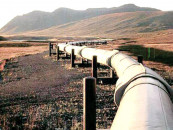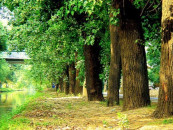Landless peasants
The lack of economic opportunities in rural areas is fuelling rural-urban migration

There are many laws on the statute books in Pakistan and Sindh to protect labour and socio-economic rights of landless peasants, but unfortunately their presence is nullified by non-enforcement. The result is that they are the chief factor of production though, they are often unable to make ends meet. They work hard yet are not assured of getting enough food. On the other hand, in Sindh, 80% of all arable lands are owned by nearly 5% families. What basically accounts for non-implementation of laws relating to agricultural labourers is the widespread illiteracy in Sindh, which has decreased over the years from 62.2% from 63%. The female literacy rate is far lower than the overall percentage.
At a recent event, the Hari Welfare Association (Sindh) disclosed that peasants have the right to have a significant say in deciding policies with regard to agriculture, fishing, land, water and other inputs but the irony is that they are excluded from the process in Sindh and other provinces. Peasants and small landholders are unaware of the procedure to obtain agricultural inputs like seeds, fertiliser and working capital on easy terms from state organisations. This facilitates big farmers to appropriate these facilities for their own benefit. The harsh conditions force landless peasants from Thar and other regions to move to other districts during harvest and sowing seasons to work away from home. This movement proves an additional burden on their inadequate income.
The lack of economic opportunities in rural areas is fuelling rural-urban migration. The lack of income-generating prospects in rural areas is so acute that poor villagers prefer to work and live in cities and towns, where they get at least their minimum needs fulfilled. This situation has stemmed from successive governments’ failure to increase employment opportunities in rural areas. In an agricultural country, cattle farming can well be encouraged and dairy industries can be set up in areas close to villages. This can provide a large number of people with work.
Published in The Express Tribune, April 20th, 2021.
Like Opinion & Editorial on Facebook, follow @ETOpEd on Twitter to receive all updates on all our daily pieces.















COMMENTS
Comments are moderated and generally will be posted if they are on-topic and not abusive.
For more information, please see our Comments FAQ